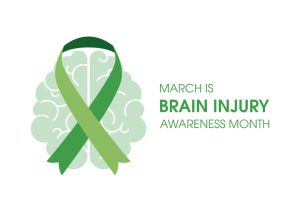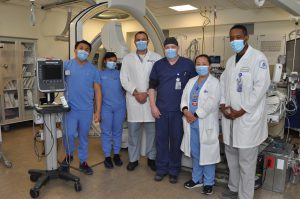The Brain Injury Association of America ( BIAA) has designated the month of March as Brain Injury Awareness month. This designation was initiated over thirty years ago to bring attention to this very serious issue.
There are two basic types of brain injuries. They are:
- Non Traumatic Brain Injury – caused by lack of oxygen, a tumor, a stroke or a birth defect
- Traumatic Brain Injury – caused by a fall, penetrating wound, or by blunt force to the head
The BIAA estimates that there are over 5.3 million people in the United States that are living with a brain injury and it is estimated that 2.8 million new cases occur each year.
A brain injury can affect a person physically, behaviorally or emotionally. Almost half of brain injuries are due to a person falling and hitting their heads. Other leading causes of traumatic brain injuries are sports-related injuries and head trauma due to domestic violence.
Anyone who experiences a head trauma should immediately seek proper medical evaluation and care. If the person loses consciousness, call 911 or go to the nearest emergency room.
All content of this newsletter is intended for general information purposes only and is not intended or implied to be a substitute for professional medical advice, diagnosis or treatment. Please consult a medical professional before adopting any of the suggestions on this page. You must never disregard professional medical advice or delay seeking medical treatment based upon any content of this newsletter. PROMPTLY CONSULT YOUR PHYSICIAN OR CALL 911 IF YOU BELIEVE YOU HAVE A MEDICAL EMERGENCY.











